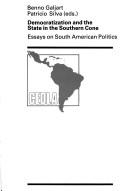| Listing 1 - 10 of 16 | << page >> |
Sort by
|

ISBN: 0333930932 Year: 2001 Publisher: New York : Palgrave,
Abstract | Keywords | Export | Availability | Bookmark
 Loading...
Loading...Choose an application
- Reference Manager
- EndNote
- RefWorks (Direct export to RefWorks)
Book
ISBN: 0333714830 Year: 2001 Publisher: Basingstoke Palgrave
Abstract | Keywords | Export | Availability | Bookmark
 Loading...
Loading...Choose an application
- Reference Manager
- EndNote
- RefWorks (Direct export to RefWorks)
Book
ISBN: 9780271036106 Year: 2021 Publisher: University Park, PA
Abstract | Keywords | Export | Availability | Bookmark
 Loading...
Loading...Choose an application
- Reference Manager
- EndNote
- RefWorks (Direct export to RefWorks)
Multi
ISBN: 9780271036106 Year: 2021 Publisher: University Park, Pa Penn State University Press
Abstract | Keywords | Export | Availability | Bookmark
 Loading...
Loading...Choose an application
- Reference Manager
- EndNote
- RefWorks (Direct export to RefWorks)

ISBN: 9070280515 9789070280512 Year: 1989 Publisher: Amsterdam: CEDLA,
Abstract | Keywords | Export | Availability | Bookmark
 Loading...
Loading...Choose an application
- Reference Manager
- EndNote
- RefWorks (Direct export to RefWorks)
Representative government and representation --- Democracy --- Democratization
Book
ISBN: 1282949926 9786612949920 9047431898 9004177833 Year: 2009 Publisher: Leiden ; Boston : Brill,
Abstract | Keywords | Export | Availability | Bookmark
 Loading...
Loading...Choose an application
- Reference Manager
- EndNote
- RefWorks (Direct export to RefWorks)
From democratic restoration in the 1980's up to today, most Latin American countries have been struggling constantly to find a workable balance between the need to strengthen the authority of state institutions and their citizens’ aspirations to have a real say in the decision-making process. This book looks at the contrasting ways in which both Brazil and Chile have been dealing with societal demands for participation during the last two decades. The contributors to this volume highlight a series of historical and political factors that help to understand why Brazil has been able to introduce innovative democratizing policies while Chile has largely failed in the advancement of participatory schemes as its decision-making process continues to be heavily top-down and technocratic. Contributors: Rebecca N. Abers, Gianpaolo Baiocchi, Adolfo Castillo Díaz, Herwig Cleuren, Gonzalo Delamaza, Vicente Espinoza, Joe Foweraker, Marcus Klein, Kees Koonings, Adalmir Marquetti, Patricio Navia, William R. Nylen, Paul W. Posner, Patricio Silva, and Brian Wampler.
Political participation --- Brazil --- Chile --- Politics and government
Book
ISBN: 9073782325 Year: 1995 Publisher: Leiden Research School CNWS
Abstract | Keywords | Export | Availability | Bookmark
 Loading...
Loading...Choose an application
- Reference Manager
- EndNote
- RefWorks (Direct export to RefWorks)
Economic development --- Planners --- Planning --- Congresses --- Developing countries --- Economic policy --- Congresses.
Book
ISBN: 027103453X 0271036109 0271049936 0271053364 Year: 2008 Publisher: Penn State University Press
Abstract | Keywords | Export | Availability | Bookmark
 Loading...
Loading...Choose an application
- Reference Manager
- EndNote
- RefWorks (Direct export to RefWorks)
Book
ISBN: 9789047431893 9789004177833 Year: 2009 Publisher: Leiden [Netherlands] ;Boston [Mass.] Brill
Abstract | Keywords | Export | Availability | Bookmark
 Loading...
Loading...Choose an application
- Reference Manager
- EndNote
- RefWorks (Direct export to RefWorks)
Book
ISBN: 1003254357 1000559211 1000559270 1003254357 Year: 2022 Publisher: London ; New York, New York : Routledge,
Abstract | Keywords | Export | Availability | Bookmark
 Loading...
Loading...Choose an application
- Reference Manager
- EndNote
- RefWorks (Direct export to RefWorks)
"This book investigates why Chile suddenly descended into violence and revolution in 2019, after almost thirty years of peace, during which time the country was broadly regarded as Latin America's most successful nation. Since democratic restoration in 1990, Chile's relatively high levels of stability, increasing prosperity and social modernisation have stood out in a region shaken by social and political convulsion and economic malaise. In early 2019, President Sebastián Piñera confidently claimed that Chile represented a true 'oasis' of political stability and economic vitality. However, just weeks later, the announcement of a small increase in the price of Santiago's underground transport system unleashed an unprecedented wave of extremely violent anti-government protests in the country, with protestors ultimately demanding Piñera's resignation and the end of neoliberalism and the 1980 Constitution, amongst many other demands. This book analyzes the causes of Chile's socio-political upheaval, arguing that the neoliberal model and fast process of economic transformation led to a series of destabilizing political processes in the country. At a time when much analysis of the October uprising tends to be superficial or polarized on ideological grounds, this book provides a much needed sociological and institutional analysis of the crisis. It will be an important read for scholars of Latin American politics and development, as well as those with a broader interest in state legitimacy, social movements, and political contestation against neoliberalism"--
Political violence --- Social change --- Government, Resistance --- Protest movements --- History --- Chile --- Economic conditions --- Politics and government --- Social conditions
| Listing 1 - 10 of 16 | << page >> |
Sort by
|

 Search
Search Feedback
Feedback About UniCat
About UniCat  Help
Help News
News